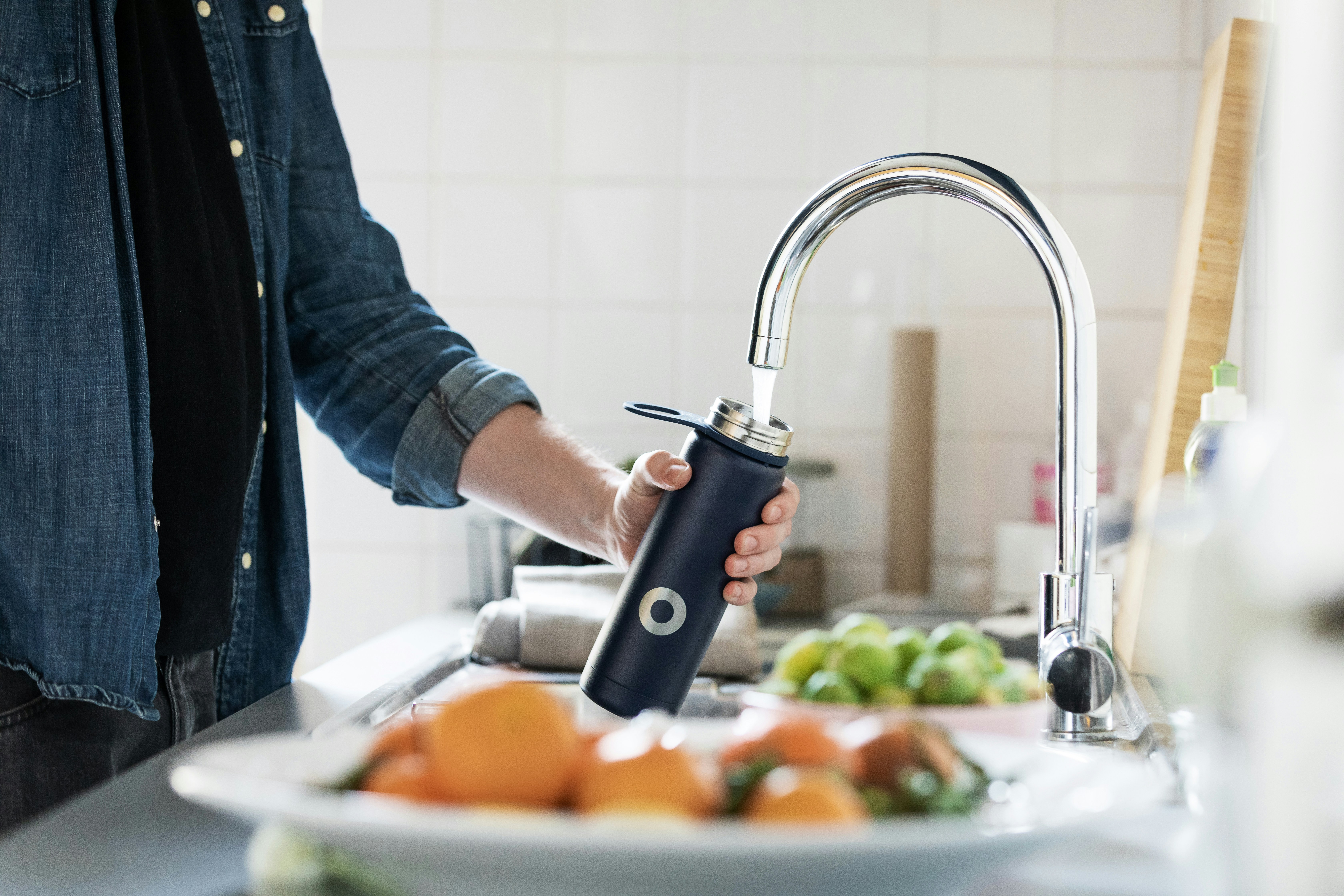For many Muslims around the globe, Ramadan is a spiritually significant month—a time of self-reflection, prayer, and fasting from dawn until sunset. Yet, even with the deep religious importance, there’s a practical aspect that many wonder about: how do you stay productive and maintain mental clarity during the fasting period? In this article, we’ll explore evidence-based tips—rooted in science—for staying focused and energized throughout the day. We’ll also show you how photo-based meal logging via the upcoming FoodEye app can make a real difference in planning and tracking your meals without added stress.
1. Understanding What Happens to Your Body and Brain During Fasting

Photo by Robina Weermeijer on Unsplash
Metabolic Switch & Ketone Production: After about 12–16 hours of fasting, your body’s liver glycogen stores begin to deplete, prompting a shift toward fat breakdown. As a result, ketone bodies become an alternative fuel source for the brain. Interestingly, some studies suggest ketone production may stimulate brain-derived neurotrophic factor (BDNF), a protein essential for neural plasticity and memory (Dighriri et al., 2022 [1]).
Neuroprotection Through Autophagy: Fasting can trigger autophagy—a cellular “cleanup” process—within brain cells, helping reduce oxidative stress. By clearing out damaged proteins, autophagy may support long-term brain health.
Cognitive Effects: The impact on thinking and alertness can vary. Some people experience heightened focus in the morning, while tasks requiring verbal memory might drop off later in the day (Souabni et al., 2020 [5]). Being aware of these natural ebbs and flows can help you schedule important tasks at optimal times.
2. Don’t Underestimate the Power of Sleep

Photo by Greg Pappas on Unsplash
It’s no secret that late-night prayers and waking up for Suhoor can disrupt your normal sleep schedule. Reduced or fragmented sleep impacts attention, working memory, and reaction time (Alhola & Polo-Kantola, 2007 [2]). Below are a few strategies to keep you sharp:
- Plan a Consolidated Block: Aim for a solid 4–6 hours of continuous sleep if you can. This block might come after Taraweeh prayers or after your Suhoor meal.
- Short Naps for a Boost: A quick 20-minute nap in the afternoon or early evening can help minimize sleep debt.
- Maximize Sleep Hygiene: Use blackout curtains or an eye mask, limit screen time before bed, and try to keep a consistent bedtime routine. Simple steps can improve overall sleep quality (Cleveland Clinic Abu Dhabi, 2021 [6]).
3. Smart Nutrition Tips for Suhoor and Iftar
When you have limited “eating windows,” it becomes crucial to choose nutrient-dense foods that sustain your energy and mental acuity. Think of Suhoor as your foundation and Iftar as your reset.
- Load Up on Omega-3 Fats: Fatty fish like salmon or sardines offer DHA and EPA, which are linked to healthy brain function (Dighriri et al., 2022 [1]). If fish isn’t an option, walnuts or flaxseeds can be a good plant-based alternative.
- Embrace Antioxidants: Dates, berries, and leafy greens help combat oxidative stress in brain cells (Bagatayev et al., 2018 [3]). Dates also provide a quick energy boost and are traditionally used to break the fast.
- B Vitamins and Magnesium: Whole grains, legumes, and leafy greens supply B vitamins and magnesium, supporting nerve signaling and neurotransmitter synthesis (Xu et al., 2022 [10]). Look for brown rice or whole-wheat bread at Iftar to keep you fueled without a sudden crash.
- Choose Complex Carbs at Suhoor: Oatmeal, whole-grain bread with eggs, or yogurt with chia seeds can deliver a slow, steady release of energy throughout your fast (Cleveland Clinic Abu Dhabi, 2021 [7]).
4. Hydration: A Key Factor You Can’t Overlook

Photo by Bluewater Sweden on Unsplash
Even mild dehydration—about a 2% drop in body fluid—can slow down cognitive tasks like attention and memory (Adan, 2012 [4]). That’s why hydration between Iftar and Suhoor is crucial.
- Set a Water Goal: Aim for 8–10 glasses (about 2–2.5 liters) of water spread out over non-fasting hours.
- Hydrating Foods: Foods like cucumbers, watermelon, and soups can help you sneak in extra fluids.
- Monitor Urine Color: A pale, straw-colored hue is ideal; anything darker suggests you need to drink more (WHO EMRO, 2021 [8]).
Remember that caffeinated beverages can have a mild diuretic effect, so balance that out with extra water if you enjoy coffee or tea at night.
5. Daily Habits to Keep You on Track
Schedule High-Energy Tasks: If you notice you’re more focused right after Suhoor or earlier in the day, take advantage by tackling your most demanding projects then. As you get closer to Iftar, consider switching to less cognitively intense tasks.
- Short Naps & Breaks: A 15–30 minute power nap can significantly recharge your brain. Alternatively, close your eyes and breathe deeply for a few minutes if you can’t nap.
- Light Exercise: A gentle walk or stretching session can improve blood flow and oxygen delivery to the brain (Souabni et al., 2020 [5]). Avoid high-intensity workouts before Iftar to prevent dehydration.
- Caffeine Strategically: Enjoy a cup of coffee or tea after Iftar, but avoid consuming it too late. Excess caffeine can disrupt sleep, compounding daytime fatigue (Grandner et al., 2014 [9]).
- Stress Management: Simple techniques—like mindfulness or short meditation sessions—help lower cortisol levels and support clearer thinking.
6. Keeping Track: How FoodEye Simplifies Meal Logging
Tracking meals can feel cumbersome—especially during Ramadan. You already have enough on your plate (pun intended!). That’s why we’re developing FoodEye, a photo-based meal-logging app designed to make tracking less complicated. Simply snap a picture of your Suhoor or Iftar meal, add quick notes, and let the visual log guide your improvements.
- Identify Patterns: Over time, you’ll see if your meals are balanced or if you consistently miss essential nutrients.
- Instant Feedback: Reviewing a series of photos can be more intuitive than scrolling through numbers in a calorie-tracking app.
- Easy Adjustments: Spot when you need more veggies or if your Iftar is leaning too heavily on quick carbs. A visual cue can be a game-changer.
Whether you’re striving to add more fiber, manage hydration, or adjust portion sizes, FoodEye’s intuitive design aims to keep the process stress-free and practical—perfect for the fasting individual who wants to stay on track.
7. Conclusion: Small Shifts Make a Big Difference
Ramadan is about more than just abstaining from food and drink; it’s a period of spiritual growth, gratitude, and community. By understanding the basic science of how fasting impacts your energy and brain, you can tweak your routine to maintain productivity. From optimizing your sleep to carefully planning your meals and staying hydrated, each small change adds up to better focus and mental clarity.
If detailed tracking isn’t your style, remember that a quick photo—like the approach FoodEye offers—can be an effortless way to stay aware of your nutritional intake. As you navigate this sacred month, know that simple, science-backed adjustments can help you stay alert, productive, and healthy while honoring your religious commitments.
Note: This blog post is for informational purposes only and does not constitute medical advice. Always consult a qualified healthcare professional for personalized guidance, especially if you have underlying health conditions.
